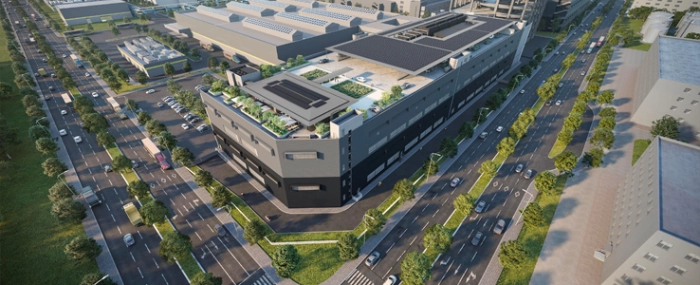
Dyson to open battery manufacturing plant in Singapore
Technology company Dyson is launching a major acceleration of its international manufacturing capabilities and global R&D footprint, with a next-generation battery plant in Singapore and new R&D campuses in the Philippines and the United Kingdom.
“Software, connectivity, AI, and proprietary new technology batteries will power the next generation of Dyson technology. Just like our long-term investments in pioneering digital electric motor technology, Dyson’s next generation battery technology will drive a major revolution in the performance and sustainability of Dyson’s machines,” says James Dyson, founder of Dyson.
Singapore, the location of the company's global headquarters, has been chosen as the home for its first proprietary new technology battery plant. The building is scheduled to be completed this year and will become fully operational by 2025, producing Dyson battery cells.
The factory, which is the size of 53 basketball courts, is located at Tuas, in the west of Singapore.
Dyson started its in-house battery programme more than a decade ago. Research teams have been working globally on the proprietary new technology battery, which uses novel materials and processes, and is assembled in a smart, digitally enabled environment.
"We are focused on developing radically new and innovative Dyson products using science and pioneering technologies. Our advanced manufacturing expansion in Singapore will enable Dyson to bring entirely new battery technology to market. Singapore’s highly skilled engineers and scientists, and supportive government that embraces Industry 4.0 manufacturing, make it the perfect place for a high-technology company such as Dyson," says Roland Krueger, Dyson's Chief Executive.
A new Philippines Technology Centre, representing an investment of GBP 166 million, will bring together Dyson’s research, development and advanced motor manufacturing capabilities under one roof. As part of the investment, Dyson aims to initially hire an additional 400 engineers and more than 50 graduate engineers who will join the team later this year.
Amongst other things, R&D teams in the Philippines will be focused on software, AI, robotics, fluid dynamics and hardware electronics. The campus is currently scheduled to be operational in the first half of 2024.
However, Dyson is not done with its investment. Adding to both the new facilities in Singapore and the Philippines, the company also plans to invest GBP 100 million in a new Technology Centre in Bristol, UK. The new UK centre will l, UK, that will be home to hundreds of software and AI engineers working on a pipeline of products that stretches 10 years into the future.

